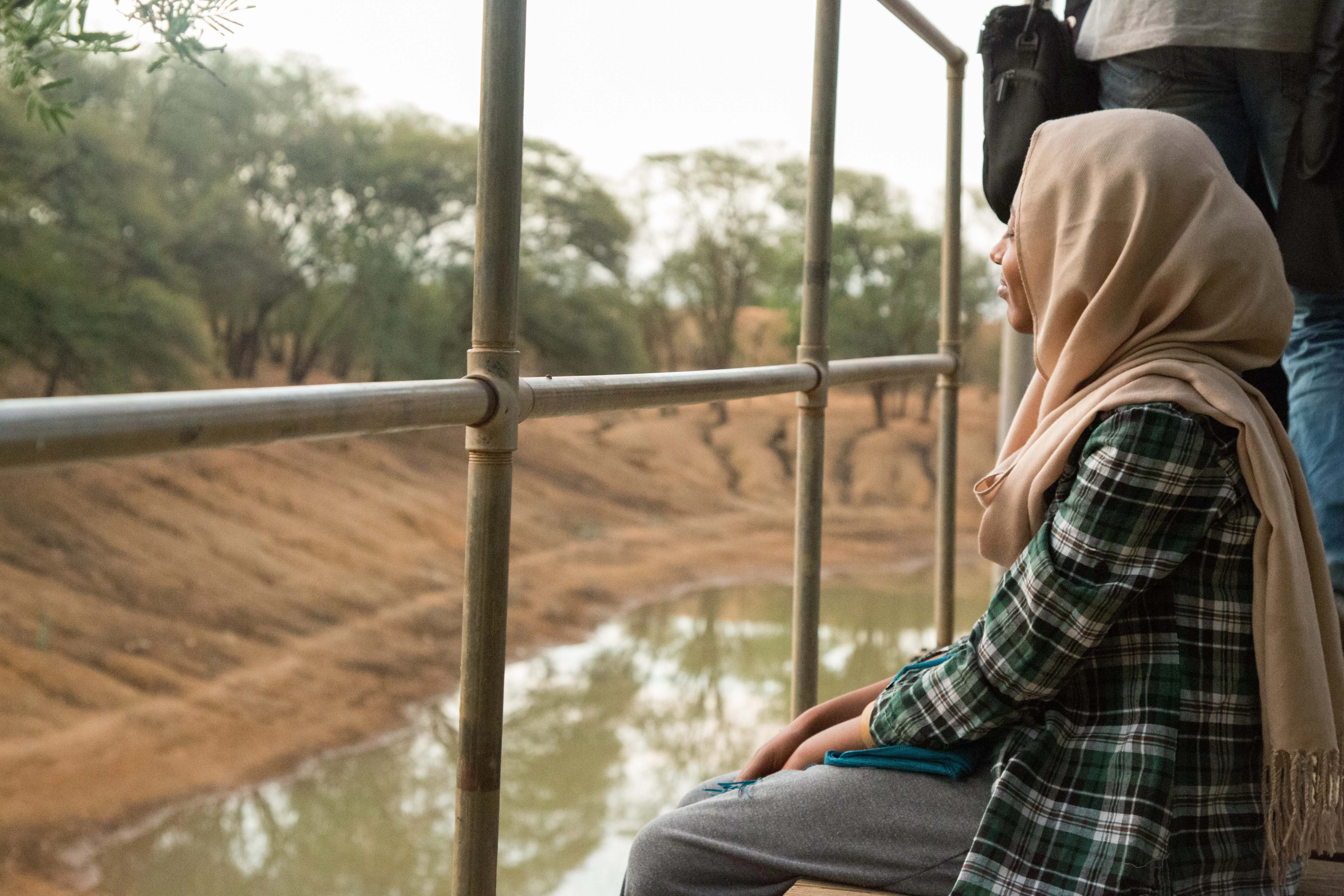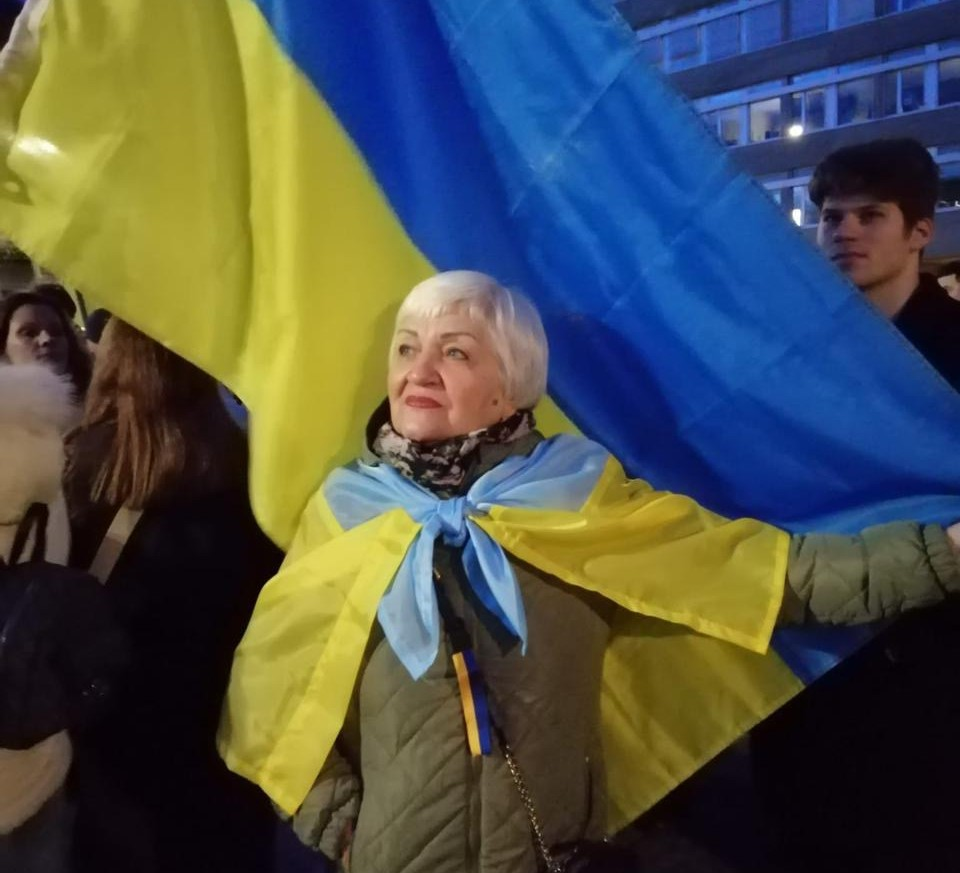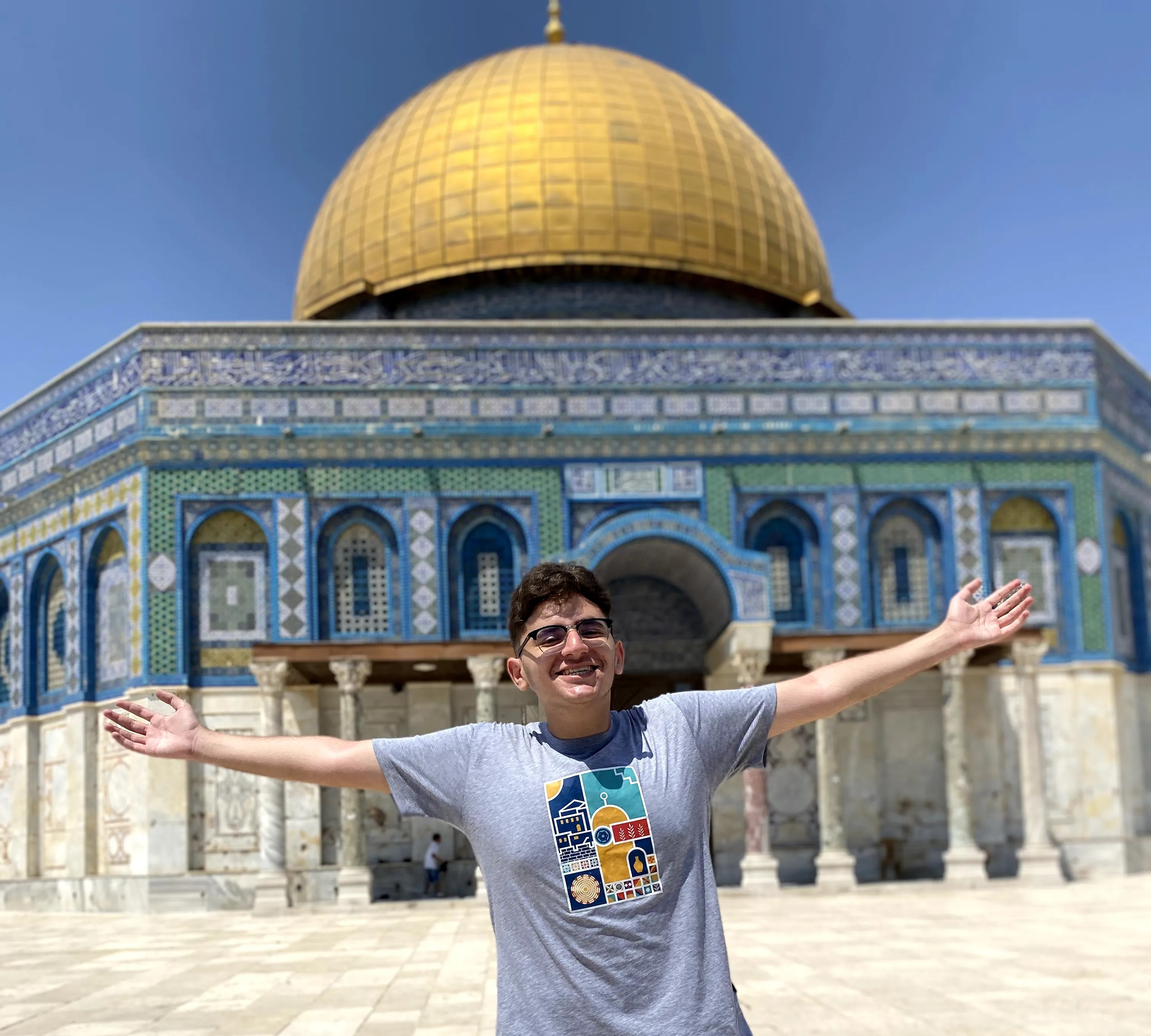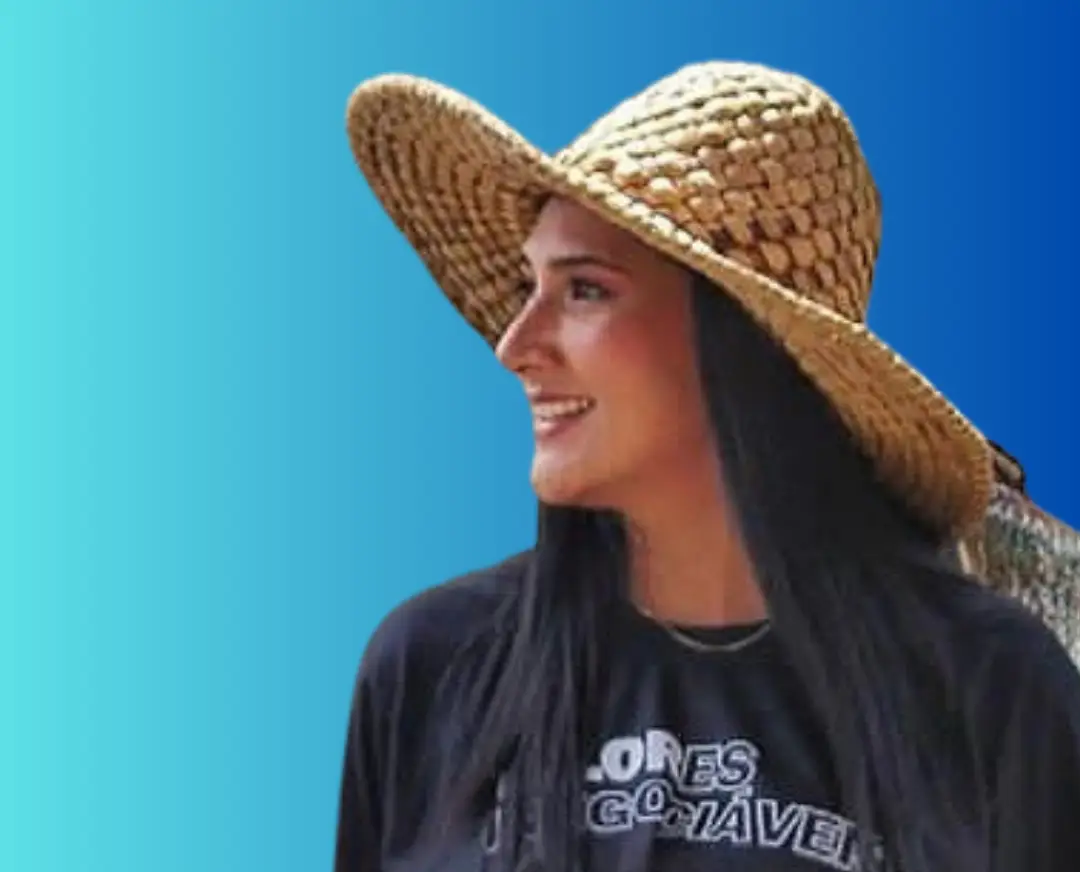
I am a Sudanese woman, a Muslim, African, Black, and Arab. Growing up in Sudan, my identity was as rich and vibrant as the spices in the bustling marketplace of Khartoum. Surrounded by the murmur of a hundred languages, my heritage was a beautiful mosaic, not a single, separate tile. Being a minority was a concept I ticked on Western forms, a formality that held no weight in the embrace of my homeland. That all changed the day I left home.
My childhood was spent in my grandfather’s house in Aljazeera, a cherished experience. At a young age, I transitioned to his home, where we cultivated vegetables that became my playground. Amongst the animals in another space, I found joy and learned the importance of caring for our surroundings. The environment provided abundantly, offering fresh milk straight from the cows for breakfast. My grandparents gave me the choice to choose our breakfast that comes directly from the soil and nature. These memories of a childhood intertwined with nature and family stories remain my favorite to this day.
My dearest childhood friend, the lemon tree, witnessed countless afternoons spent under its dappled shade, listening to my grandmother weave tales of our rich heritage. The rough bark held silent answers to my childhood curiosities, and its branches, like a wise elder’s arms, embraced my daydreams. That tree is more than just a fixture; it’s a member of my family, a repository of shared stories and songs, imbued with the warmth of my grandmother’s kindness and the quiet wisdom of my grandfather. It offers not just tangy lemons but also a haven for laughter-filled coffee sessions. The vast yard beneath its canopy becomes a gathering place, welcoming not only family and friends but also the souls of other creatures who seek refuge in its shade. Here, under the watchful gaze of the lemon tree, all are embraced. I am the product of my home, everywhere I visited, and every soul I met. Who I am today is what Sudan taught me to be. It’s the lesson I share with my lemon tree, a constant reminder of my roots. I felt such a deep connection to our soil, my land, that I even turned to Google Maps to check if the tree still stood tall. Today, that tree holds the stories of my life, perhaps better than I could ever tell them myself. Once I’m back, my first trip will be to that lemon tree.
Despite the risks associated with the EU’s ‘Better Migration Management’ project, which placed militias with troubling human rights records in charge of border control, I clung to the hope that our national unity would hold. However, seeing these heavily armed militias patrolling the city streets was a stark realization that war was looming. The optimism fueled by the revolution instilled a belief that our sense of Sudanese identity (Sudanisum) could overcome any external influence. This sentiment resonated with most Sudanese from 2013 to 2022. April 2023 came and I existed in a state of suspended awareness. Deep down, I had a feeling that there might be trouble ahead, but I didn’t fully realize how serious it was. We always knew the situation was linked with external agendas, and deep down, I didn’t want to believe that these agendas could break any of the Sudanese unity.
A few minutes away from our house in Khartoum, ongoing clashes were taking place between different groups. I imagined these were the shootings that we had heard before. The phone was blowing up with messages from friends checking on me and my family, informing me that the war had started. What war? I was in denial. What seemed like a European project to stop the illegal immigration of Sudanese has turned into the war that Sudan is witnessing today. The turning point came when embassies began destroying passports and evacuating their staff. The sight of UN agencies and INGOs departing through military airports on military aircraft solidified the reality – we were on our own. The message was clear: amidst this madness, our survival depended on each other. I never wanted to imagine that a war could happen as we all believed that Sudanese unity was always above everything else.
The network system stopped working, and we couldn’t reach out to family or friends. Only the TV was available. I turned it on, and a reporter I trusted was reporting on the situation, stating places that were hit. In our history, there are places in Sudan that were never hit, like the airports, and now the situation seems more serious as a war is declared. At that moment, I became like a machine, collecting information on what was happening without feeling anything. I needed to ensure the safety of everyone around me. On the 3rd day, I spoke with my sister, Azza, to discuss our next steps. We made sure to provide everything from food, water, to medications. As a family, we gathered and allocated responsibilities to each member. My role was to determine our family’s next move. The situation was becoming more intense, and Eid had just begun. Despite the escalating circumstances and the sound of gunfire outside, my mother insisted that we open our doors to guests and celebrate. She thought, \'How could one celebrate Eid with closed doors?\' While the shootings grew nearer, I couldn\'t help but think about how the situation is worsening. My mind remained focused on finding a way out of the situation as quickly as possible.
We decided to go to Egypt as it was the only country accessible without a visa. It took us 5 days to finally find a way to leave. My friend called me, mentioning that she had tickets meant for her family who chose not to leave Sudan. Knowing the urgency due to my parents’ health situation, she offered us the tickets. With only three tickets for four people, I couldn’t leave anyone behind. The plan was for my parents and sister to go first, and I would follow once I found a way. The driver showed kindness by refusing to separate the family due to the war, assuring us that we could find a place for me as well.
This was the defining moment – the moment when our Sudanese identity had to prevail. And prevail it did. We rose to the challenge, a surge of kindness washing over our communities. With the help of a friend, the driver, and countless strangers, my family and I managed to escape. Our bond as Sudanese people strengthened, even as fear became a constant companion. The primal instinct for survival numbed the sharp edges of pain, but worry gnawed at us relentlessly. When would we return home, if ever?
I had left everything that held emotional value to me, including our photo album and laptop containing countless pictures of every corner in Sudan and videos of Sudanese sharing their stories that I had collected since 2016. I pray to retrieve them, as they narrate our stories and showcase the beauty of Sudanese people and our connection to our land.
As I crossed the Sudanese border, fleeing conflict, each footstep unfolded a new reality. The weight of the word “refugee” settled on my shoulders, a label that spoke of difference and displacement. Leaving Sudan was a brutal awakening, a realisation that I wouldn’t return the same. This forced displacement became a defining moment, compelling me to confront a new reality and rewrite my story.
In Sudan, our family didn’t only include my mom, dad, and siblings. Family encompasses our uncles, cousins, aunts, and neighbours with whom we forged deep connections, as well as the house I grew up in - my grandfather\'s house. That’s my family. Sometimes the network doesn’t allow us to stay in touch, but deep down, I know the connection is always there. Being saved now and them staying there doesn’t make sense to me. We grew up knowing that what I get, they get too. We live collectively; there’s no place for me vs. you. In Sudan, it’s always us.
This experience transformed me. I am now a different person, a tapestry woven with threads of joy and sorrow, strength and vulnerability. These seemingly opposing emotions coexist within me, a complex dance that is both a burden and a blessing. This newfound strength fuels my determination to carve my own path, independent of a system that has proven inadequate. I carry the rich tapestry of my Sudanese identity with me, forever shaped by my homeland, yet determined to forge my own future.
In Sudan, I built AKHDUR, a social enterprise that tackled food waste and created opportunities for IDPs and refugees. It was a project fueled by hope, and even earned me recognition as an ‘Enterprise for Peace Scholar.’ But war shattered those efforts. My people lost their jobs, some even lost their loved ones. For them, I’m determined to do more. For them, I’m searching for a new path to rebuild what was lost or forge something entirely new. Until then, I’ll keep surviving, finding ways to move forward.
The strength I found came not just from myself, but from the incredible team at AKHDUR. They helped me secure a job within a month of fleeing the war. Without them, I wouldn’t have left Egypt when legal residency became a struggle. They pushed me to believe in myself, to see my own strength. All these years, I thought I was helping them, but the truth is, they were the ones holding me up. I am eternally grateful for them, and for the loved ones we’ve lost. May we all be reunited in heaven.
While I can’t erase the images I’ve seen, I close my eyes and push away the images of destruction. Instead, I see the people - strong, resilient, their faces etched with hardship and the stories of our land. But their eyes hold a spark of hope, a quiet strength that burns ever so brightly. This is the image I hold onto, a testament to the human capacity for forgiveness, the unwavering belief in a better tomorrow, and the enduring strength of our Sudanism.
During those grim days when corpses lay in the streets, it wasn\'t international aid organisations that stepped forward. It was the Sudanese youth—the real heroes—who collected the fallen. When Madani city faced disaster, there were no police to guide frightened children to safety. Instead, it was the same youth who took charge. And when the educational system collapsed, they improvised, creating grassroots educational programs. We are far from helpless; our actions speak louder than the media\'s silence.
There\'s always hope, even in the darkest of times. Take, for instance, the story of the demolished factory in Sudan. Instead of merely rebuilding it, the returning workers chose a different path. They decided to train local farmers in crop processing techniques. In doing so, they empowered the community to become more resilient. This resilience is deeply ingrained in the Sudanese spirit—we build, we rise, and we never give up. These are the people who give me so much power and hope. I know we will never stop, but always keep building back. This is us. This is Sudan.
My grandfather used to say, \"الله يهديكم زمن سميح.\" For the longest time, I didn\'t fully grasp the meaning behind these words. But now that the war came and I left my home, their significance became crystal clear.
Now we are scattered all around the world and bringing people together has always been a passion of mine, and so this is exactly what I did. It sparked in the most unexpected way. I didn’t even call it a sharing circle – it started somewhat unexpectedly when I decided to gather a group of friends for an outing. Although they were all strangers to each other, to my delight, they bonded over their shared love of Sudan. Witnessing them connect over familiar melodies and reminisce about childhood in Sudan was a powerful reminder that isolation can be a common feeling for those who’ve left their homeland. I\'ve often found solace in sharing my feelings with a friend. We dedicate time to call each other, allowing tears to flow freely. Strangely enough, it works—it\'s cathartic. And I often thought about those whose pain is trapped within them and not expressed in any way. This spark of connection we felt over shared experience solidified my belief in the healing power of community. Fueled by this discovery, I’ve continued to create these spaces for connection wherever I find myself.
For those struggling within or outside of Sudan, you are not left behind, nor forgotten. You are our family, our people, and we are all in this together. Though scattered across the globe, the distance between us is shorter than it feels. Our shared spirit, our Sudanism, binds us closer than any map can show. For the love of Azza, we will rise together, stronger than any challenge. Throughout history, we have faced immense struggles, but they have never been greater than our collective will. Except for hate. It terrifies me because it can fracture us from within. That’s why I became part of a laugh project—an initiative to address anger and emotions. Hate speech is capable of threatening our unity, and I refuse to let it become part of our culture. Even when the guns fall silent, how will we look at each other? It shouldn\'t be Sudanese against Sudanese; we must stand united against external forces.
We will not only survive this, we will thrive, our roots growing deeper, reaching for a brighter future. Let’s share our stories, celebrate our cultures, and keep the flame of hope burning bright. Together, let’s build a network of support, wherever we may be in the world. We are Sudan, and our unity is our strength.
Today, wherever we are, we are carrying the soul of Sudan with us. We left our homes but we are carrying homes with us. Home is the soil, the soul, and everything in between. Home is what nourishes the spirit, and where it thrives. Home is the tapestry woven from culture, heritage, people, and values, where I feel a deep belonging and connection, home is where my soul finds its anchor, and the land that holds a piece of me. In turn, I carry pieces of her with me on every journey, just like my fellow Sudanese brothers and sisters. Sudan, or Azza as we lovingly call it, pulses with a vibrant spirit that I carry with me wherever I roam. This is my true home and I know deeply that I will come back home. We miss home. I miss my brother’s house and my room there. I miss my parents’ house and my room there. I watched my parents struggle to build our house in Sudan that over years became home. That is everything to them. I know they want to go back. I wish that for them and for me too. Everything I left behind in Sudan is home, and everything I took with me is home too. Home is the soul of Sudan, and today I choose to be that soul. I am that soul of Sudan. I carry this soul wherever I am. As Sudanese, we take our identity wherever we go and we build from there.
My beloved friend Ammar is my “why.” Together, we vowed to embody the soul of Sudan wherever we went. He honoured that promise, living by his medical oath and giving his all. And so will I. Driven by a love for Sudan, for life, and our people, he was on a medical convoy in Karri, Khartoum, when tragedy struck. Although his loss pains me deeply, his sacrifice ignites my resolve to fight for our homeland, Azza. I will fight now and forever.
I know this deeply, Azza. We will come back.
I know this deeply; our sudanism will win.


